The world is a weird place. Have you ever wondered:
♦ Why do most people, even those in Africa and Asia, wear western-styled clothing?
♦ Why do people believe that reason and science are the only ways to sure knowledge while simultaneously believing that we should make decisions by following our hearts?
♦ Why was every country in the history of the world a third world country until the 1800s?
♦ Why is soccer (aka football) the world’s most popular sport?
♦ Why are there now only six countries in the world that say they aren’t democratic when 250 years ago none said they were?
♦ Even though the western world has largely cast aside Christianity, why do we still tend to embrace the distinctly Christian values of love, freedom, justice, and human dignity?
Andrew Wilson thinks he knows the answer. And that answer is 1776.
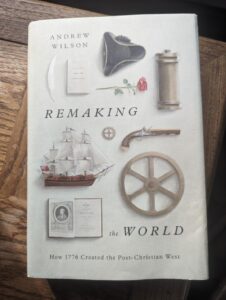 In Remaking the World Wilson contends “that 1776, more than any other year in the last millennium, is the year that made us who we are” (p. 7). In that year we find not only the birth of democracy in the American Revolution, but also of globalization, the industrial revolution, the enlightenment, the dawn of romanticism, and the rise of our ex-Christian world.
In Remaking the World Wilson contends “that 1776, more than any other year in the last millennium, is the year that made us who we are” (p. 7). In that year we find not only the birth of democracy in the American Revolution, but also of globalization, the industrial revolution, the enlightenment, the dawn of romanticism, and the rise of our ex-Christian world.
The year 1776 saw the publication of Adam Smith’s seminal ode to capitalism (The Wealth of Nations) and of Edward Gibbon’s (Christianity was the cause of) The Decline and Fall of the Roman Empire. That year James Watt installed the first steam engine in a commercial enterprise, and Rousseau began writing his landmark book on romanticism, The Reveries of the Solitary Walker.
But wait! There’s more!
And Wilson fills in his premise with impressive amounts of fascinating detail, vigorous synthesis, and penetrating insight. All the while he brings in contemporary illustrations from Hamilton and The Hunger Games to The Lord of the Rings and Game of Thrones.
Yes, he overplays the point that 1776 was the critical year for everything—but not by much. His case for the importance of that decade and the late eighteenth century generally is extraordinary. More to the point, when it comes to why our world is the way it is, he exhibits vast and highly illuminating explanatory power.
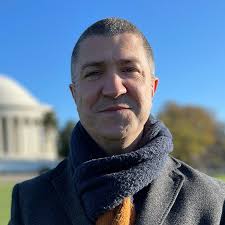 Wilson closes with three Christian themes from the 1770s to help navigate the weird world that decade has bestowed on us.
Wilson closes with three Christian themes from the 1770s to help navigate the weird world that decade has bestowed on us.
Grace. We do not bear the impossible burden that our (enlightenment and romantic) world places on us of creating our own identity, status, and value. Rather, God shows his favor to us regardless of our accomplishments, intelligence, or wealth.
Freedom. Though Christians have often failed to live up to Jesus’ model of offering good news to the poor and liberty for the oppressed, we still have the opportunity to champion both. By the Spirit we can battle two opposite lies. On the one hand we can oppose the idol of materialistic (industrialized, affluent) success in the church in favor of spiritual flourishing. On the other hand, we can fight the gnostic heresy that the material world doesn’t matter by combating the lie that the physical lives of the poor and oppressed are not important.
Truth. Reality is not lodged in abstract, impersonal, scientifically verifiable principles. Rather truth is graciously personified in the Father, Son, and Spirit. Jesus, who was full of both grace and truth, again is our model. We dare not separate the two.
If you want to understand what’s going on in the world today and respond to it fruitfully, don’t follow the news. Instead read my “Book of the Year”—Remaking the World.


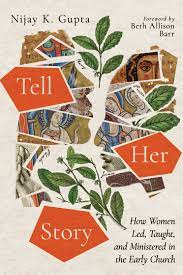
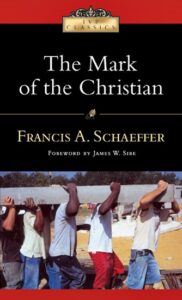
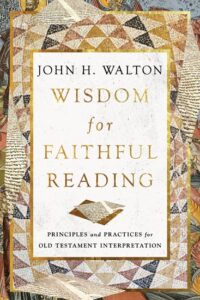
 That can sound eerily like many people today who only associate with those who share their political viewpoints and who only consume “news” from outlets (right or left) that they agree with. They may be unwittingly cooperating with their own mental and emotional exploitation.
That can sound eerily like many people today who only associate with those who share their political viewpoints and who only consume “news” from outlets (right or left) that they agree with. They may be unwittingly cooperating with their own mental and emotional exploitation. 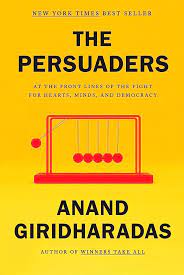 Instead The Persuaders reports on some of the different approaches left-leaning strategists, activists, and legislators have been using recently to shift the thinking of voters. Each chapter focuses on one or two key people, such as Bernie Sanders, Alexandria Ocasio-Cortez, and others. And we find some interesting approaches described which depart from less than successful practices of the past.
Instead The Persuaders reports on some of the different approaches left-leaning strategists, activists, and legislators have been using recently to shift the thinking of voters. Each chapter focuses on one or two key people, such as Bernie Sanders, Alexandria Ocasio-Cortez, and others. And we find some interesting approaches described which depart from less than successful practices of the past. 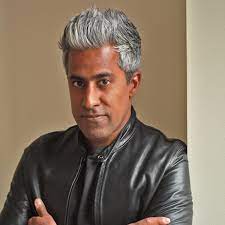 Often I am annoyed by reviews that say, I don’t like this book because the author didn’t write it the way I would have. And there may be some of that in my critique. But the book could have been so much better (more persuasive?) if the author had taken longer to write it, thought more deeply about the nature of persuasion, and guided us more concretely on how the character of our national discussions needs to change to preserve and enhance civility and democracy.
Often I am annoyed by reviews that say, I don’t like this book because the author didn’t write it the way I would have. And there may be some of that in my critique. But the book could have been so much better (more persuasive?) if the author had taken longer to write it, thought more deeply about the nature of persuasion, and guided us more concretely on how the character of our national discussions needs to change to preserve and enhance civility and democracy.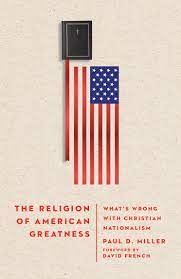
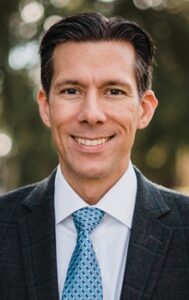 Miller argues that nationalism does not create national unity, as its proponents contend. Rather Christian nationalism still has anti-democratic, illiberal tendencies, especially in how it treats ethnic and religious minorities. “Nationalism is the identity politics of the majority tribe. . . . It perpetuates the cycle of political warfare between nationalist majorities and identity-group minorities, each side . . . trying to seize state power and milk it for perks for their tribe” (p. 108).
Miller argues that nationalism does not create national unity, as its proponents contend. Rather Christian nationalism still has anti-democratic, illiberal tendencies, especially in how it treats ethnic and religious minorities. “Nationalism is the identity politics of the majority tribe. . . . It perpetuates the cycle of political warfare between nationalist majorities and identity-group minorities, each side . . . trying to seize state power and milk it for perks for their tribe” (p. 108).
 What about this: “Scientific models don’t perfectly match observations so they can’t be relied on.” Which FLICC is this? You probably got this right away—it’s impossible expectations which demand unrealistic standards of certainty.
What about this: “Scientific models don’t perfectly match observations so they can’t be relied on.” Which FLICC is this? You probably got this right away—it’s impossible expectations which demand unrealistic standards of certainty.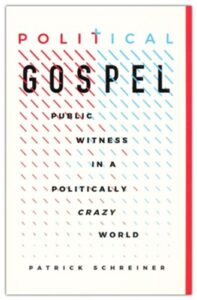
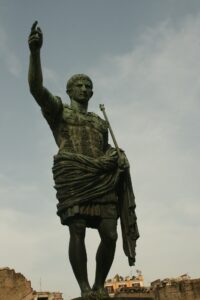 Jesus submitted to a Roman trial when he could have used his power (that is, he could have used violence) to stop it. He didn’t. Nonetheless, he refused to accept Rome’s authority as ultimate. God was the source of whatever authority the government had. While the government could act contrary to God, it was nonetheless responsible for its misdeeds and for failing to provide justice for the weak and oppressed.
Jesus submitted to a Roman trial when he could have used his power (that is, he could have used violence) to stop it. He didn’t. Nonetheless, he refused to accept Rome’s authority as ultimate. God was the source of whatever authority the government had. While the government could act contrary to God, it was nonetheless responsible for its misdeeds and for failing to provide justice for the weak and oppressed. 
 While the differences in Bible versions can be confusing, it’s important to remember the advantages. It means we have a variety of translations well suited for different purposes–some for public reading, some for study, and others for devotional reading. In addition, if we come across phrases like “holy kiss,” “with . . . a double heart,” “make their ears heavy”—we may be left a bit befuddled. By comparing different translations, we can sometimes get a better sense of the range of meanings in a text. 40 Questions charts dozens of translations along a continuum to show how they each wrestle with the balance of accuracy and readability in different ways.
While the differences in Bible versions can be confusing, it’s important to remember the advantages. It means we have a variety of translations well suited for different purposes–some for public reading, some for study, and others for devotional reading. In addition, if we come across phrases like “holy kiss,” “with . . . a double heart,” “make their ears heavy”—we may be left a bit befuddled. By comparing different translations, we can sometimes get a better sense of the range of meanings in a text. 40 Questions charts dozens of translations along a continuum to show how they each wrestle with the balance of accuracy and readability in different ways.